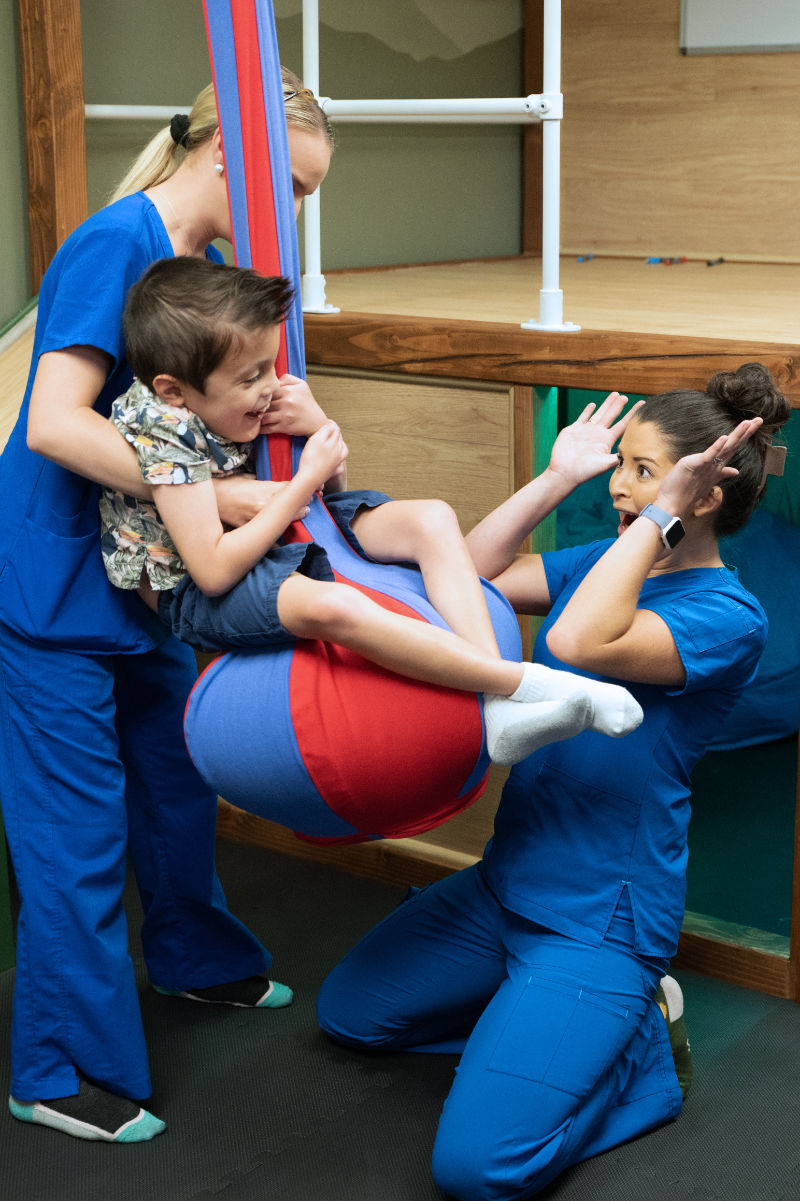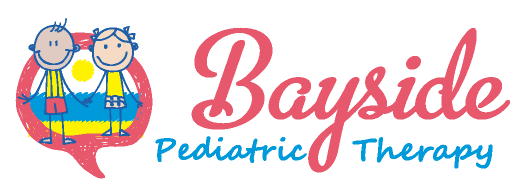OCCUPATIONAL THERAPY
Sensory Processing Concerns
Does your child have a difficult time paying attention? Are they easily distracted? Do they display aversion with certain clothing fabrics or various food textures? Do they have a difficult time with bright lights or loud noises? Or does your child crash into furniture, jump off chairs, or chew on various objects? If you answered yes to any of these questions, then you may have some sensory processing concerns for your child. Our sensory system organizes information from our senses, which includes vision, hearing, taste, tactile, proprioception, and vestibular input. Sometimes our sensory systems do not interpret this information from our environment effectively which can than hinder our everyday performance. A sensory processing delay can lead to difficult behaviors or trouble learning at school. At Bayside we will fully evaluate your child’s sensory concerns and develop a unique plan with several sensory strategies. Once their sensory concerns are addressed, they will function more effectively and be more open to learning and socialization!
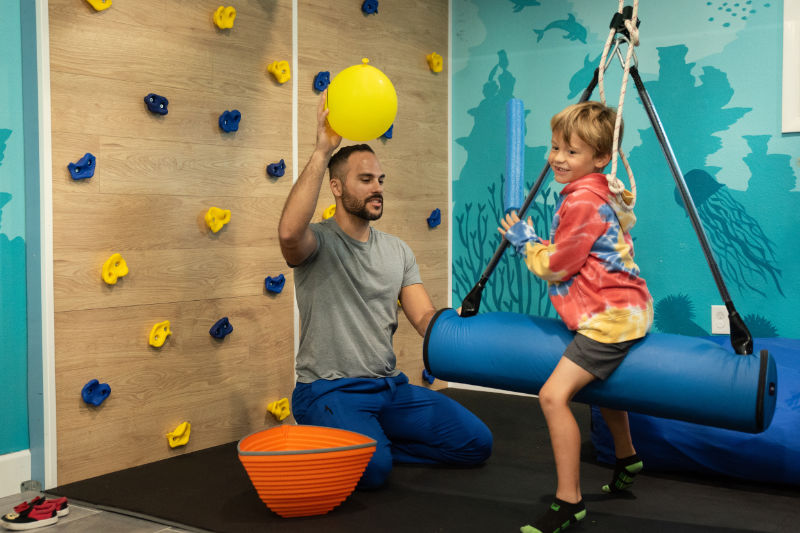
Feeding Issues
Feeding therapy can help your child if they are not eating enough or not eating at all. This may happen because of a medical diagnosis, previous medical procedures, being a picky eater, or decreased oral-motor skills.
It can be scary when your child is not eating or not eating enough. Here at Bayside we work with your child’s doctors and nutritionists to develop a unique family-centered plan. During feeding therapy, we will focus on making the muscles of the mouth stronger, increasing the different types and textures of foods and liquids, and monitoring their swallowing to ensure their safety. We want to help your child develop normal feeding patterns and behaviors so that your child can grow and be healthy. Through different oral-motor techniques and incorporating sensory components we want to make the entire process of eating easier and more enjoyable for your child and family!
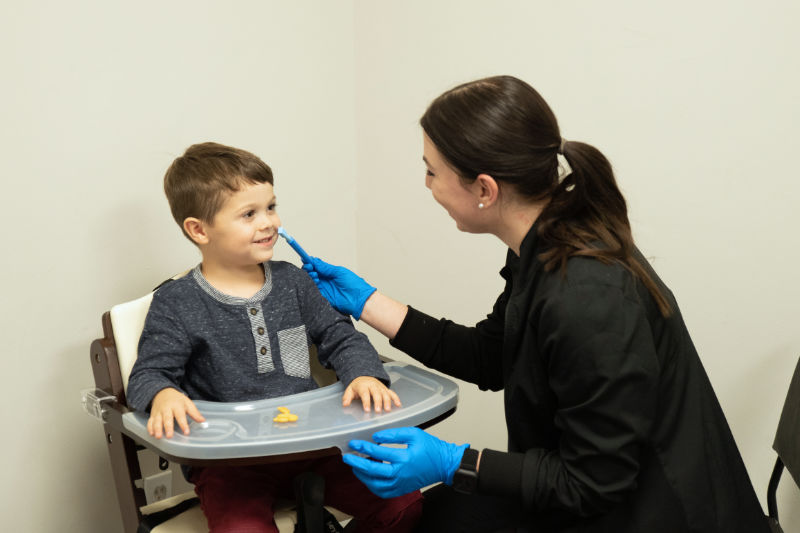
Handwriting and Fine Motor Skills
Handwriting can be a common concern for school aged children. If your child is having difficulty with illegible letters/words, not sitting effectively in their chair, and/or difficulty using a pen/pencil then these all can be concerns that are addressed during Occupational Therapy. Letter formation requires integration of the visual, motor, sensory, and perceptual systems. Working on the proper posture for upright sitting can be a start to improving handwriting. Here at Bayside we use Handwriting Without Tears Techniques. This program helps children form letters correctly. Also, alternative techniques are used such as pencil grips, a slant board, a writing utensil fidget, or learning keyboarding.
Children with fine motor delays also may have difficulty with everyday activities such as getting dressed in the morning, tying shoes, feeding themselves, being able to hold everyday items without dropping them, and other necessary skills for daily living. If your child has difficulty with these activities, Bayside will complete a full evaluation with a unique treatment plan to address all your concerns for your child.
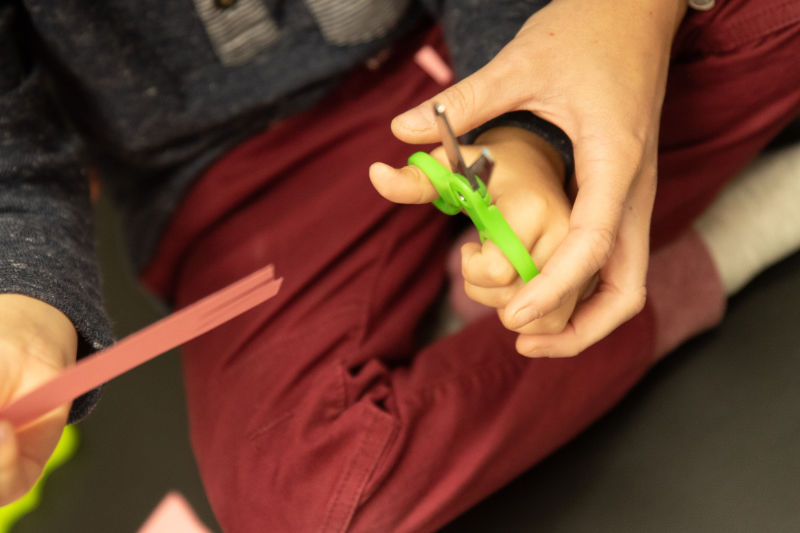
Reflex Integration
Primitive reflexes are crucial aspects of a newborn and infant’s life. These reflexes help our children develop essential motor skills such as crawling, sitting up independently, eating, rolling over, walking, and many other developmental milestones. Some children never integrate these reflexes which can cause a delay in fine motor skills, attention, reading, bladder control, frustration tolerance, and an increased anxiety. Our trained occupational therapists can help integrate these reflexes with specialized techniques from the Move Play Thrive Brain and Sensory Foundation.
